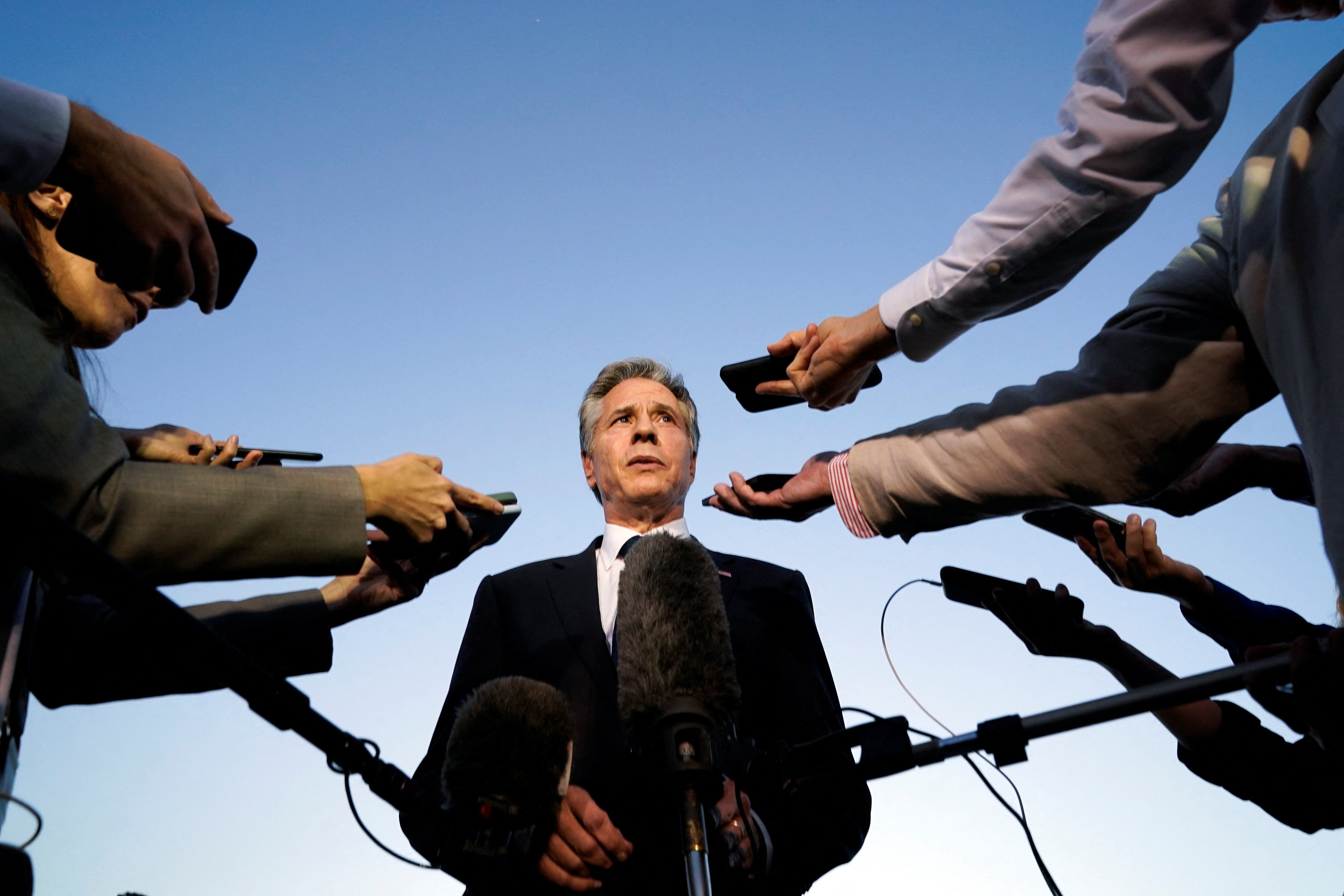As the crisis in Israel and Gaza deepens, various world powers are weighing in and offering to help mediate, some for their own geopolitical interests.
Washington repeatedly offered unwavering support to Israel following the Hamas attacks, but it is now also trying to address the humanitarian crisis in Gaza. In a phone call Saturday with Palestinian Authority President Mahmoud Abbas – whose authority extends primarily to the West Bank – President Joe Biden pledged his full support for "urgently needed humanitarian assistance to Palestinian people, especially in Gaza."
On Saturday, Biden spoke with Israeli Prime Minister Benjamin Netanyahu, reiterating US military support for Israel but also broaching the need for international coordination to “ensure innocent civilians have access to water, food, and medical care.” In turn, on Sunday, the US announced it was moving a second aircraft carrier into the region, and Israel restored the water supply to southern Gaza, though Palestinians have criticized the move as a “publicity stunt” since much of the infrastructure has been damaged by shelling or is unusable due to a lack of electricity.
In a broadcast interview on Sunday, Biden said that Israel reoccupying Gaza would be “a big mistake."
Meanwhile, US Secretary of State Antony Blinken announced the reopening of the Egyptian-controlled border crossing into Gaza and that the US was working with Egypt, Israel, and the UN to expedite assistance across the border, but there are conflicting reports as to whether a deal is in place.
Blinken has been on a whirlwind diplomatic tour in recent days, visiting with six of Israel’s neighbors in an attempt to prevent escalation. On Monday, he returned to Israel as its military prepared for an offensive in Gaza by land, sea, and air, with emphasis on “significant ground operations.”
Meanwhile, China is also getting involved. Beijing is reportedly in “intensive communication with all parties to push for a ceasefire and an end to the fighting,” with a focus on the humanitarian crisis in Gaza. On Friday, Zhai Jun, China’s special envoy to the Middle East, met representatives from the 22-member Arab League in Beijing, seeking to broker a peace agreement between Israel and the Palestinians in conjunction with Egypt. The next day, Chinese Foreign Minister Wang Yi spoke with Saudi Foreign Minister Faisal bin Farhan Al Saud and said that Israel’s actions have extended beyond self-defense. China’s top diplomat, Wang Li, said that "The crux of the issue lies in the fact that justice has not been done to the Palestinian people.”
Statements like these, together with Beijing’s unwillingness to condemn Hamas, signal that China may be returning to its stance from the 1960s and 70s when it openly supported the Palestine Liberation Organization’s bid for statehood. Analysts believe China has concluded that Israel will always align with US interests and has “picked a side” to gain favor among Arab nations and win their support for its larger authoritarian agenda.
The conflict between Israel and Hamas also provides fertile ground for Russia to divert attention from its war with Ukraine. Russian diplomat Konstantin Gavrilov told the pro-Kremlin Izvestia newspaper, “Ukraine’s sponsors will be distracted by the conflict in Israel … the amount of military aid will go down … and the course of the operation may turn sharply in [Russia’s] favor.” Nonetheless, on Friday, Russian President Vladimir Putin offered to mediate the conflict, saying that “Russia is ready to coordinate with all constructive partners.”
While no one expects Moscow to play a pivotal role in talks, it has sway with a number of parties involved, including Iran, which has threatened “far-reaching consequences” if Israel enters Gaza. Russia also has ties with Qatar, and a state media outlet reported that Russian Deputy Foreign Minister Mikhail Bogdanov may soon meet with Hamas officials in Qatar to discuss the potential release of hostages kidnapped by Hamas.
Apart from Iran, Qatar arguably has the most influence over Hamas as its government has reportedly supported Hamas to the tune of $30 million a month. Qatar is also able to put financial pressure on Iran, as evidenced by its recent agreement to a US request that it not allow Tehran access to $6 billion in Iranian funds that were unblocked as part of a prisoner swap in September.